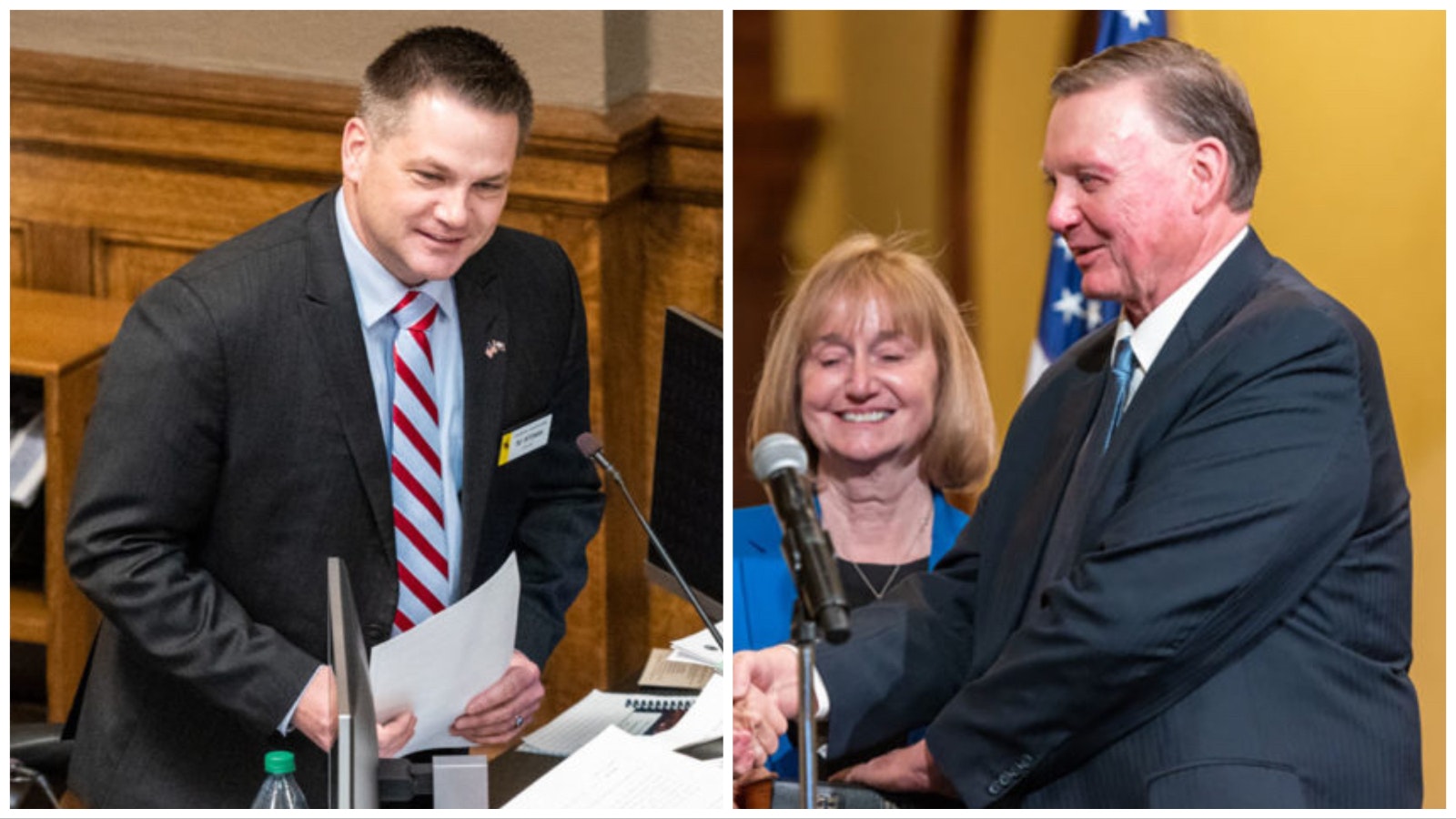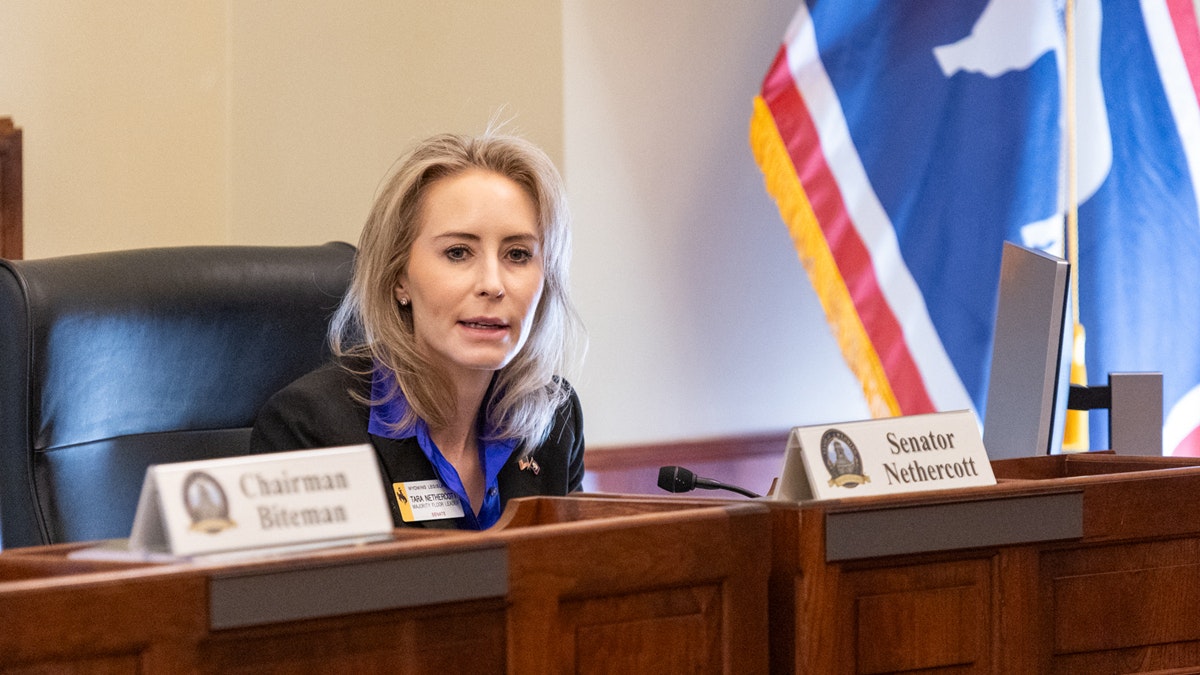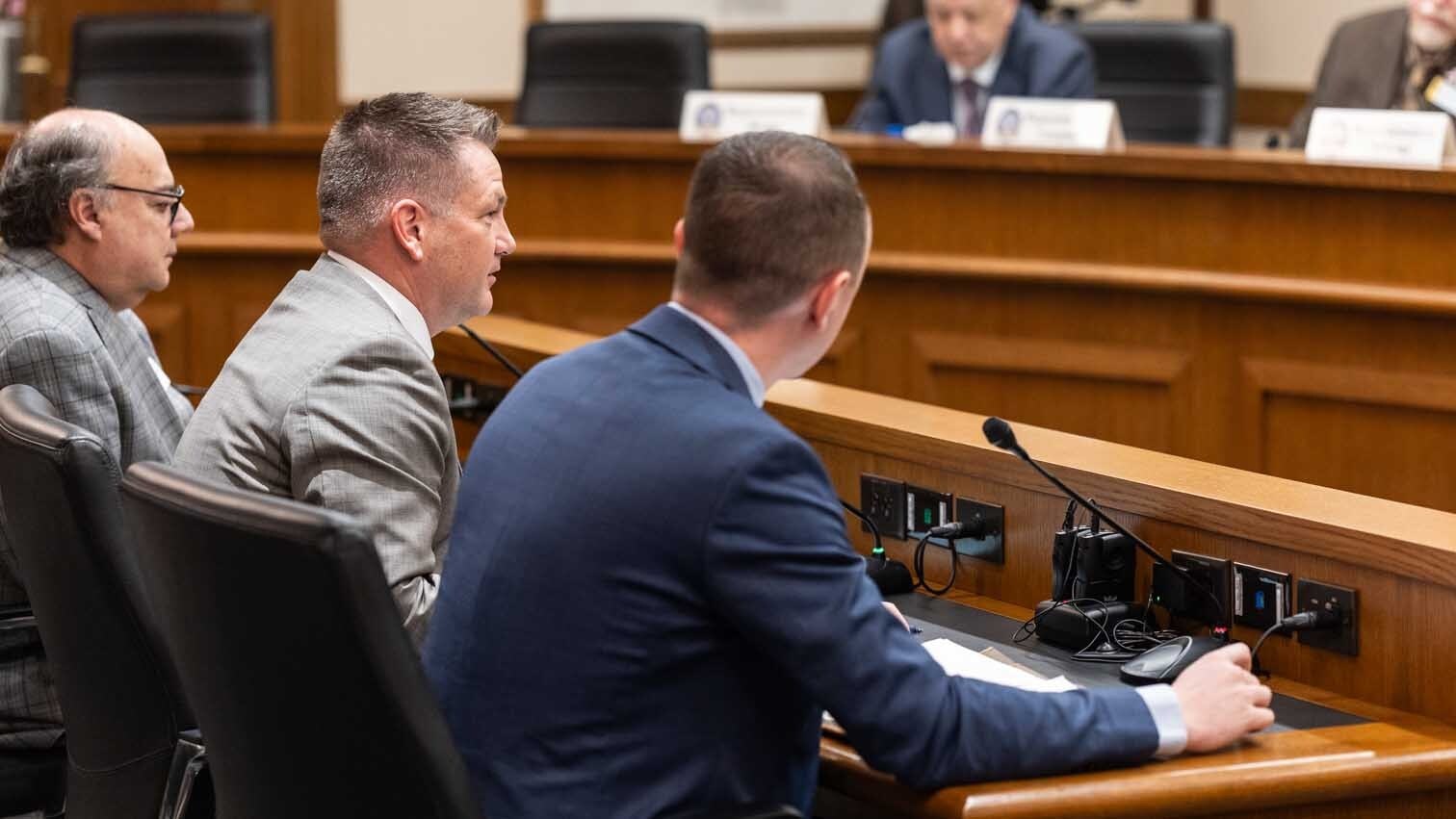Despite two bills about it being rejected in the past legislative session, environmental, social and governance (ESG) ratings is still a point of focus for Wyoming lawmakers.
The Joint Management Council finalized the Legislature’s topics of discussion for the upcoming interim session Thursday, and ESG has been tagged for discussion with the Joint Appropriations Committee this summer.
ESG, also called “woke capitalism” by critics, rates funds on various markers of progressive-friendly policies related to protecting the environment, diversity in the workplace and community relations. Any association with fossil fuel industries quickly gets a fund rated down. Timber industries, gun manufacturers and agricultural businesses also face pressure from the movement.
State Investment Policy
State Treasurer Curt Meier addressed the council about ESG on Thursday, and said his office has a policy listed on its website stating a dedication to agnostic investing behavior, but this same policy is not listed in its investment statement.
It is only the latter that the state’s investment managers have to comply with.
Meier is now drafting an ESG statement similar to what has been implemented in Florida that requires investment managers to manage the state’s funds strictly in a manner that provides the highest rate of return.
“The furtherance of social, political or ideological interests” is not to be considered, the draft says.
“If they don’t handle our funds in that regard, and they do it in a regard of putting other non-pecuniary things above the interest above our pecuniary interest … they’re essentially violating their contract,” Meier said.
Focus And Fine-Tune
The State Loan and Investments Board will finalize Wyoming’s draft at its April 6 meeting, Meier said.
Meier believes the policy will alleviate some of the negative aspects he saw in the failed anti-ESG bills brought during the last legislative session, while embracing their strengths.
Sen. Bo Biteman, R-Ranchester, brought two bills addressing ESG in the session, both passing through the Senate before failing to receive consideration in the House.
Biteman told Cowboy State Daily he is considering future legislation on the issue but wants to first see how ESG is addressed during the interim.
“These ESG policies will be holding Wyoming back in the very near future,” Biteman said.
Assignments Matter
The Management Council moved an originally proposed ESG discussion from the Select Committee on Capital Financing & Investments to Joint Appropriations. Almost immediately after, Biteman, watching from the audience, walked out of the meeting room.
Biteman told Cowboy State Daily he does not believe Appropriations is the correct committee to discussing ESG.
In February, Biteman engaged in a contentious back and forth with members of House Appropriations Committee over his two ESG bills. The committee ended up making significant changes to his bills that he believed changed their original intent.
Mental Health
Aside from ESG policy, the council considered where other issues should be assigned.
House Speaker and Management Council President Rep. Albert Sommers, R-Pinedale, said there is a desire to establish a Mental Health and Vulnerable Adults Task Force within the Legislature.
“The idea is to get a better, more comprehensive understanding around all the issues of mental health,” Sommers said.
This committee would likely build off the efforts of Gov. Mark Gordon’s Health Task Force, established in 2020.
Sen. Larry Hicks, R-Baggs, opposed creating a panel purely by the choice of the 10-member Management Council rather than the entire Legislature.
“I’m adamantly opposed to the Management Council arbitrarily creating a new task force and allocating resources of the state of Wyoming that have not gone through the legislative process,” he said.
Mental health issues also will be discussed in the Joint Education and Health, Labor and Social Services committees.
Gordon recently announced a framework for addressing mental health issues in Wyoming, spurred by recommendations from his Health Task Force.
Education, Energy, Etc.
The Education Committee also will tackle the constitutionality of school choice and the idea of sending tax money with students to attend charter or private schools of their choice.
The Joint Corporations Committee will again discuss net metering despite complaints made by the Wyoming Solar Coalition. Net metering is the practice of allowing people who produce excess electricity from their personal solar and wind generation to sell that a utility at a retail rate.
Property taxes, a major hot button topic from the 2023 session, also will be near the top of lawmakers’ to-do lists in the Interim Revenue Committee, as will sales taxes and other tax administration issues.
The Select Committee on Tribal Relations will discuss the collection of state sales taxes for online purchases for members of the Wind River Reservation. Tribal members are exempt from retail sales taxes if their purchases are made on or delivered to the Reservation.
This committee also will study other states’ approaches to collecting and distributing tax revenues.
Although any new topic can technically get brought up during an interim committee meeting, the council’s choices are seen as a guide to what each committee will discuss during the interim.





